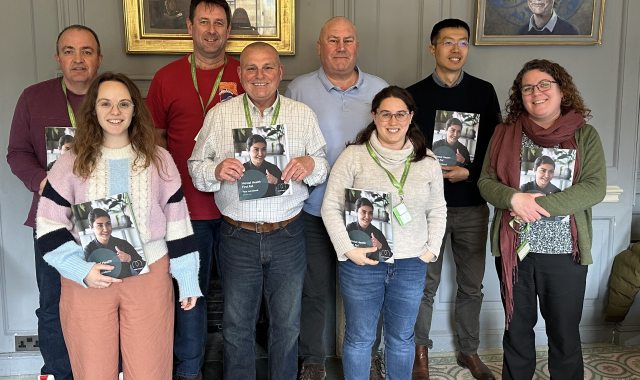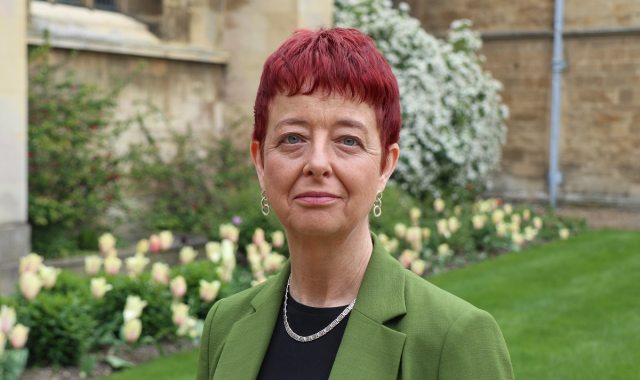Caius elects four new Research Fellows
- 26 January 2018
- 3 minutes
The winners of the prestigious 2018 Research Fellowship Competition have been announced. Specialising in a diverse range of subjects from conspiracy in the literature of the French July Monarchy to computer linguistics, the four were chosen, from a highly competitive field, for the exceptional quality of their academic records and research.
The annual appointment of new Research Fellows is a key tradition for the College. Master of Caius Professor Sir Alan Fersht said: "Electing Research Fellows is one of our most important and enjoyable activities of the year. A Fellowship an essential foot on the academic ladder for many people, especially for those in the humanities where post-doctoral funding is very difficult to obtain. All of our Research Fellows have gone on to have successful careers in academia, including four who won Nobel Prizes. Our Research Fellows have full fellowship rights. Their only obligation is to pursue unfettered research. If they wish, they can take part in the governance of the College, including standing for election to College Council as well as do some teaching.”
Research Fellowships are awarded to students judged to have an outstanding academic background, and who have demonstrated the ability to conduct innovative and thought-provoking doctoral research in science or the humanities.
The selection process is initially handled by two panels of Caius Fellows - representing the humanities and sciences. Each panel whittles the candidates down to a shortlist of four, who then present their research to both panels together - some 20 Fellows in all - and answer questions.
The four new Research Fellows are:
Rebecca Sugden, St John's
Rebecca is a Modern and Medieval Languages (MML) student who studied at Murray Edwards before transferring to St John’s for her PhD. She was the top of the MML Tripos every year, and received the highest mark ever awarded for her MPhil in English Literature. Rebecca’s doctoral research explores the representation of conspiracy in the literature of the French July Monarchy.
Guy Emerson, Trinity
Guy is a computer scientist whose work focuses on computational linguistics. He obtained firsts in Parts 1A, 1B and II of the Mathematical Tripos, and a Distinction in Part III Computer Science. His PhD thesis is titled “Functional Distributional Linguistics: Learning Linguistically Informed Representations from A Precisely Annotated Corpus”.
Joseph Ashmore, Pembroke
English student Joseph gained firsts throughout the English Tripos, and a distinction in every module of his MPhil in Medieval and Renaissance Literature. His PhD is on “Scriptural Hermeneutics and Epistemology in Early Modern Religious Writing.”
Lewis Owen, Queens’
Lewis is a scientist, currently specialising in material sciences. He achieved firsts in all parts of the Natural Sciences Tripos, and won the Norrish Prize for Physical Chemistry. His thesis is on “The analysis of structural effects in alloys using total scattering and reverse Monte Carlo techniques”. Outside of his studies, Lewis is a talented musician who received a Choral Scholarship and the Beament Prize for Outstanding Musical Performance from Queens’.
The four will be formally elected to their Fellowships in October. Congratulations to all and welcome to Caius.
The 2019 Research Fellowships will be advertised in the summer.


